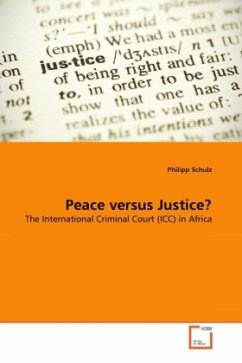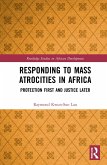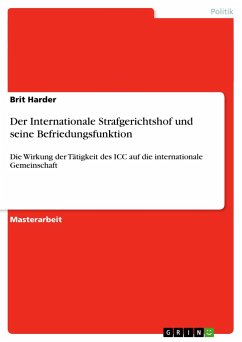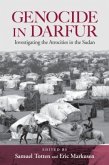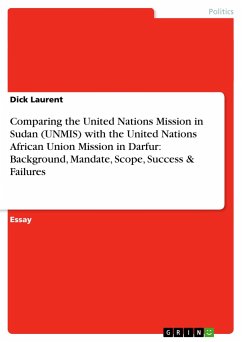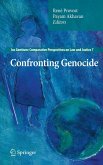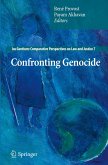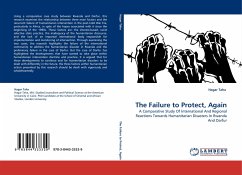The continuing debate as to whether enforcing justice for grave human rights violations interferes with restoring peace has intensified with the establishment of the International Criminal Court (ICC), which intents to put an end to impunity. But although the court has a global mandate, its current cases concentrate on the African continent only. While investigating crimes committed during ongoing conflicts, the court has been accused of being an impediment to what it, inter alia, intents to achieve: peace. By exemplarily referring to the ICC's investigations in Northern Uganda and Darfur, the author Philipp Schulz deliberates on the question whether justice ensures or reinforces peace and stability or, on the contrary, if the arrest warrants block the entire peace process? This book compiles and compares different perspectives regarding the criminal investigations in Uganda and Darfur. Hypothesis and conclusions drawn in the book are theoretically based on the concepts of restorative and retributive justice. Due to its relevance, this book addresses scholars, academics and experts involved on the ground alike.
Bitte wählen Sie Ihr Anliegen aus.
Rechnungen
Retourenschein anfordern
Bestellstatus
Storno

